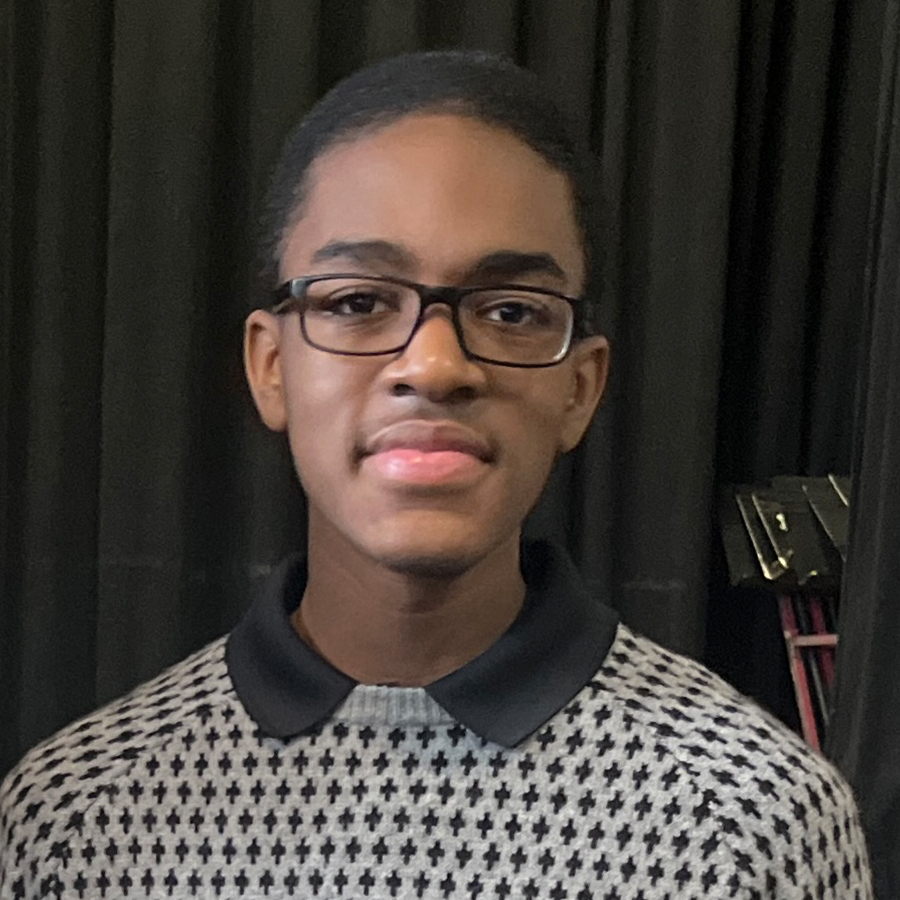
As a student at Julia R. Masterman Laboratory and Demonstration School, Michael Samuel makes the most of every opportunity to extend his studies and to prepare for college, such as dual enrollment in mathematics courses offered by Community College of Philadelphia (CCP) at Masterman. He also knew classmates who were involved in the Young Scholars Program at Penn, which allows high school juniors and seniors to take college-level courses on Penn’s campus and earn academic credit alongside Penn undergraduates—at no cost to City of Philadelphia students in the fall and spring terms. As soon as he became eligible, Michael enrolled too. “I decided to start taking classes at Penn because I wanted to get a feel for what a university class is like: the level of rigor, what size classes, what the environment and interactions with professors are like,” he recalls. “It’s also an opportunity to learn something new.”
Through the Young Scholars Program, Michael worked with an advisor to enroll in courses that he could take outside of school and after his shift working in a lab at Children’s Hospital of Philadelphia. He took a course called Ideas in Mathematics that he says helped build a foundation for the discrete mathematics he took later with CCP. But while Michael is mostly interested in science and math, he found that many college courses in those departments had prerequisites, so he turned his attention to the social sciences. “I took Introduction to Sociology and Introduction to Anthropology as a horizon-broadener, because I really haven’t had any experience with that,” he says, noting that social science in high school is mostly history class. “This class was an opportunity to look at inequality and the forces that work in society, and to understand what we mean when we refer to things like institutional or systemic problems.”
As a student of social science, Michael learned ideas and concepts that felt new to him—or that provided new language to describe the world. “There is an idea that I learned about called the sociological imagination, which is the capacity to think about our personal experience in relation to social forces and how they impact our lives,” he recalls. Among his favorite assignments was a book called Unequal Childhoods by Annette Lareau. “Unequal Childhoods discusses working class versus middle- and upper-class experiences with child-rearing and education, and how social reproduction happens—how class is perpetuated,” he summarizes. “Professor Lareau actually came in to speak to the class, which I thought was amazing and wonderful. I even got to ask her questions about her work and her book.” Michael recalls another guest speaker who spoke about how different cultural expectations children learn from their parents can play out in the classroom; for example, whether a child raises their hand to ask for help. “When considering social ideas, like the education system, there’s more depth to my thinking after taking sociology,” he concludes.
In his three semesters as a Young Scholar, Michael has gotten a good sense for the classroom environment at a school like Penn. “The class size was comfortable to me, kind of similar to a high school class in size,” he says. In anthropology, students were assigned to new groups every two weeks, so that by the end of the course you would have worked with most of the other students in the class; “If it had been a larger seminar, you wouldn’t have gotten to know as many people,” he observes. His classmates were a diverse mix of international and domestic college students—as well as a few friends from Michael’s own high school who are also Young Scholars. “I usually just try to go in and interact like I’m an undergraduate student and see what it’s like, because I think that’s the most authentic experience,” he says. “My experience interacting has been good.”
Now a high school senior, Michael looks forward to hearing from college admissions in spring and is considering his course of study going forward. “I’m thinking of majoring in cognitive science or neuroscience in the future,” he says. To future Young Scholars, he advises making sure there is room in your schedule. “The workload in the classes is variable, but be prepared to work outside of class. There will be homework,” he says. “Other than that, don’t stress over it. Have some fun.”


